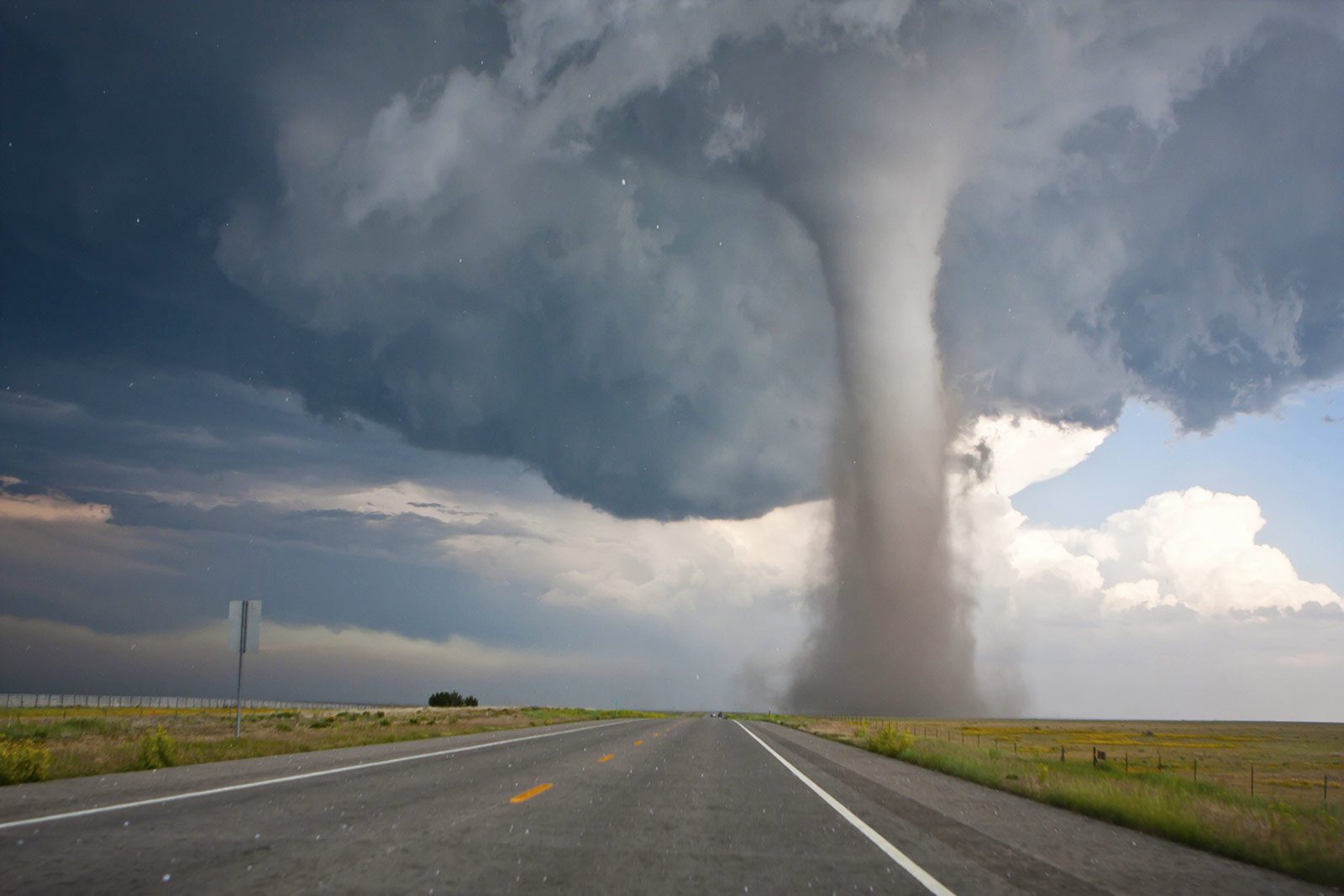Supporting Infants And Young Children Around TORNADOES
Before a Tornado:
Having a safe, stable, and supportive relationship serves as a protective factor for children who are later impacted by tornadoes.
Regularly review your tornado plan with parents and keep updated contact information. Keep your tornado plan updated and plan regular tornado drills.
What childcare providers might say or do:
(for young children) “Today we’re going to learn about tornadoes. Tornadoes don’t usually happen, but sometimes when there’s a really bad storm, the wind starts swirling and gets so strong it can knock things down. In a little while, you’re going to hear a loud alarm that will tell us it’s time to practice how to be safe if there’s a tornado. I’ll be right here with you.”*
During a Tornado:
Always check in with yourself first. If you feel overwhelmed or frozen, pause and take a deep breath (or use whatever strategy works for you) so that you can effectively follow your tornado emergency plan. Ask for help if you need it.
It is important to talk to children even before they understand the words. Talk about what is going on around them. In times of danger, assure them you are there to keep them safe.
Be honest.
Use simple language that is appropriate for the children’s ages.
Let children know what is happening next.
How you speak to children is as important as the words you use. Children respond to your volume and tone of your voice. They notice your emotions, facial expressions, and body language.
What childcare providers might say or do:
(for an infant) “That loud sound made you cry. I’m going to pick you up, hold you, and keep you safe.”*
(for young children) “That loud siren is telling us there’s a really big storm. We need to go to our safe place away from the windows.”*
for young children) “The tornado messed up our building. The windows broke, and there’s lots of glass and stuff everywhere. We need to stay in the bathroom where it’s safe until Ms. Suzie tells us we can come out. I’ll stay with you until someone comes to pick you up.”*
Pay attention to what you say to other adults even when you do not think children are listening.
After a Tornado:
Infants and young children will share their thoughts and feelings through behavior, emotions, play, and, when they are able, language. Watch and listen closely. Expect that some children will show emotion and behavior dysregulation. Be available to provide support.
Remember that it is ok, and even helpful, to talk about what happened. When children hear adults talking about experiences and feelings, they know they can too.
Children who have had their personal lives or normal routines impacted are more likely to show reactions following a tornado. Notice times when children are reminded of the tornado. It’s not always possible to know, but common reminders include sirens, dark, windy, or rainy days, or times when someone is late to pick them up.
What childcare providers might say or do:
(for an infant) “You still cry when you hear loud noises. I’m going to pick you up, hold you, and keep you safe.”*
(for young children) “I wonder if this rain and wind scare you because you remember when the rain and wind were so big that your house got messed up.” Pause, listen, and ask questions. Correct any misinformation. “This storm sounds loud and scary, but it’s a regular storm. We can play inside and stay warm and dry and safe.”*
As much as possible, keep regular structure and routines while expecting that children may need extra attention and reassurance.
Communicate with children’s parents/caregivers. Listen to parents’ concerns and share any concerns you have. Work together to find ways to best support the child.
*Note: These are examples. Use your own words and describe your own plan.
Tornado Resources for Childcare Providers
Child Care Aware: Tornadoes: https://www.childcareaware.org/our-issues/crisis-and-disaster-resources/tools-publications-and-resources/tornadoes-2/
Tornado Resources to Share with Families:
NCTSN: After the Tornado: Helping Children Heal (in English and Spanish): https://www.nctsn.org/resources/after-tornado-helping-young-children-heal
NCTSN: Parent Guidelines for Helping Children after a Tornado: https://www.nctsn.org/resources/parent-guidelines-helping-children-after-tornado
NCTSN Tips for Parents on Media Coverage of the Tornado: https://www.nctsn.org/resources/tips- parents-media-coverage-tornado
Save the Children: 10 Tips for Keeping Children Safe in a Tornado: https://www.savethechildren.org/content/dam/usa/reports/emergency-prep/GRGS-TORNADO-SAFETY.PDF (PDF automatically downloads)
Tornado Resources to Share with Children: Review the resources with parents prior to sharing them with children.
Institute for Family Preparedness Tornado Drill Social Story (scroll down): https://www. childhoodpreparedness.org/resources
Piplo Productions: Trinka and Sam: The Swirling and Twirling Wind (in English and Spanish, includes parents’ guide): https://piploproductions.com/stories/trinka-and-sam-tornado
Sesame Street Family Guide: (scroll down to Printables > Tornado Family Guide) https://www.sesamestreet.org/toolkits/emergencies
Sample Parent/Guardian Emergency Contact Information form from Tennessee Department of Human Services. Scroll down to: Child Care Agency Emergency Preparedness Template. https://www.tn.gov/humanservices/for-families/child-care-services/child-care-resources-for-providers/child-care-emergency-preparedness.html



